When it comes to city passes and travel cards, it’s usually fairly easy to figure out whether they would be worth it for you or not. For things like the Paris Pass or London Pass, they have a list of the most popular attractions and how much they cost, right there for you to see. The Swiss Travel Pass, however, is shrouded in mystery, or at least it was until I spent several days tracking down all of the prices and benefits.
A great many of the visitors and commenters on my popular page about where to go in Switzerland on a short visit are wondering whether the Swiss Travel Pass is a good deal. Embarrassingly, I’ve always had to answer that I found the pass too confusing to confidently advise people on. Now that has all changed, after literally days of research.
Note: This article was last updated in February, 2024.
Disclosure: This is a reader-supported website and some of the links are affiliate links where a small commission is paid to help keep this site going, but the cost to visitors is the same. The Swiss Travel Pass seems quite expensive at first, so it felt like it might be hard to get your money’s worth out of it. As it turns out, it’s pretty easy to get good value, and it’ll be a good deal for many visitors.
New in 2024
Prices increased an average of 5.9% from 2023 on the Swiss Travel Passes, but the Half Fare Card remains at CHF120, which is where it’s been for many years. Train fares in the country increased by similar percentages so the value is basically unchanged. There were no other notable changes to service or the included attractions and train routes.
>>>Buy the Swiss Travel Pass online
Where to stay in Interlaken and the Lauterbrunnen Valley
Since most people reading this will be visiting the Interlaken area and I get so many questions about it, I decided to write a detailed guide on which area to stay in while visiting this area.
>>>Where to stay in Interlaken or the Lauterbrunnen Valley in Switzerland
I included many huge photos in that post so readers will be able to get a better idea of what each place looks like and they are worth a look by itself.
>>>Lucerne or Interlaken: Which to visit and how long to stay?
The article just above will help you decide on how long to spend in each of Switzerland’s two best tourist areas.
Are you 100% sure where you want to go in Switzerland? This should help
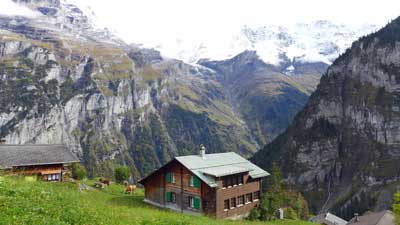
Zurich and Geneva are pleasant but dull. The good news is that Switzerland is packed with amazing sights and none of them are the big cities. If you aren’t 100% locked in yet, please read the article below and I think you’ll enjoy it.
Is the Swiss Travel Pass a good deal? Here's the short version

The bottom line is that the scenery, train journeys, and cable car rides in Switzerland are stunning and not found anywhere else in the world. They are also quite expensive if you pay for them one at a time. So no matter how you visit Switzerland, you are going to be paying quite a bit, or skipping the absolute best things that you’ve come there to see.
With good planning it’s quite easy to get great value out of a Swiss Travel Pass, but it might be a poor choice for those who don’t like to plan ahead. You can easily do a scenic train ride and a cable car in the same day, and still have time to do a scenic hike in the process.
First class or second class? Good news for most people
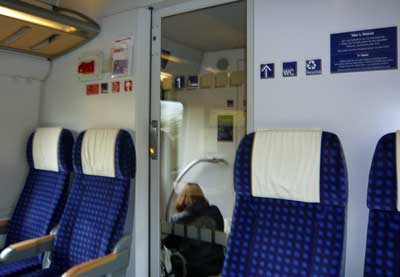
That said, Swiss Trains are literally the nicest in Europe and even the Second Class seats and carriages are nicer and roomier than trains in neighboring countries. The First Class seats are larger and nicer with only 3 across the cabin instead of 4, but honestly Second Class is perfectly comfortable for almost everyone.
Again, First Class on European trains like this is generally popular with business travelers where the company is paying and they need to get work done during the ride, and also senior citizens who don’t want to worry about a carriage full of backpackers. For most of the rest of us, Second Class is more than comfortable enough and the seat width and legroom compare to business-class airline seats. I’m a big and tall guy and I almost always travel in Second because it’s plenty comfortable enough and all the seats arrive at the same time anyway.
The longer you'll be in Switzerland, the better deal a Swiss Travel Pass will be
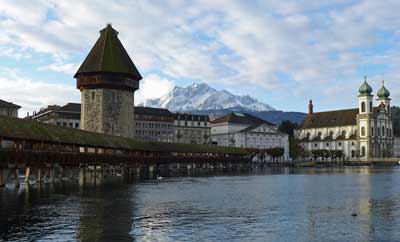
In other words, if you are staying 5 days or fewer, you have to do the math to determine your best option. But if you are spending even 6 or 7 days in Switzerland then the 6-day or 8-day Pass is almost guaranteed to be a great deal and your best choice. Once you have a Swiss Travel Pass you’ll absolutely love the ability to just hop on any train (excellent trains, always on time) and most boats and cable cars without having to worry about the cost. The per-day cost of an 8-day Pass even if you only use 6 of those days is about CHF65, and Switzerland is filled with amazing train rides and boats and cable cars that can get you that much value before noon each day.
Schilthorn (50% discount) and Jungfraujoch (25% discount) are cheaper with a Swiss Travel Pass
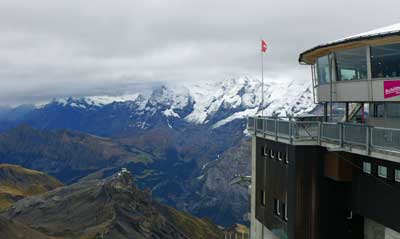
Both of those peak experiences are extraordinary and different from each other. Even so, compared to Jungfraujoch, Schilthorn is also faster and more comfortable on the way up and down. You can enjoy an excellent visit to Schilthorn in 4 hours or so (or a bit longer if you eat at the spinning Piz Gloria restaurant at the top), while a visit to Jungfraujoch requires closer to 6 hours.
NOTE: Schilthorn closes for maintenance for a week or two in late November most years.
Consider the Swiss Half-Fare Card instead
If you AREN’T going to be doing two or more of the long (and expensive) scenic train trips, you will get much better value out of the Swiss Half-Fare Card, which is explained a bit below.
Mt Rigi, near Lucerne, is 100% covered by the Swiss Travel Pass
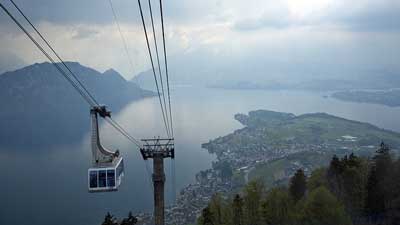
Is a Swiss Travel Pass right for you?
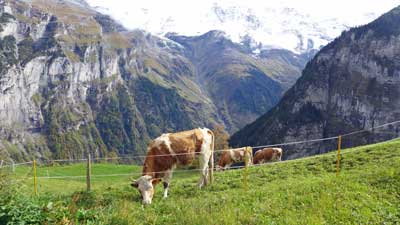
Most people only visit Switzerland for 5 or 6 days at most, so the 3-day and 4-day passes are the ones to focus on. But if you are staying for 8 days or more, those longer passes are almost certainly a great deal for you.
Long story short, if you plan on doing 2 of the more expensive scenic trains and the Jungfraujoch railway or the Schilthorn cable car, then the pass will save you money. Switzerland is expensive, but it’s worth it, and the travel pass can help make it a bit more affordable.
What the Swiss Travel Pass includes
- Free rail travel on normal trains and most scenic trains
- Discounted travel (about 50%) on popular tourist mountain trains
- Discounted travel (about 50%) on popular tourist cable cars
- Free travel on public transport in 75 towns and cities
- Free entry to around 500 museums in Switzerland
The Swiss Travel Pass covers the fare on the most popular scenic and panoramic trains. You can choose a normal seat in a regular carriage for no additional cost, but there is a supplement of CHF8 to CHF49 for a reserved seat in one of the special panorama carriages on these routes.
Prices of the 2024 Swiss Travel Pass
1st Class
- Adult 3-day Pass: CHF389
- Youth (4 to 25) 3-day Pass: 274
- Adult 4-day Pass: 469
- Youth (4 to 25) 4-day Pass: 330
- Adult 6-day Pass: 602
- Youth (4 to 25) 6-day Pass: 424
- Adult 8-day Pass: 655
- Youth (4 to 25) 8-day Pass: 469
- Adult 15-day Pass: 723
- Youth (4 to 25) 15-day Pass: 512
2nd Class
- Adult 3-day Pass: CHF244
- Youth (4 to 25) 3-day Pass: 172
- Adult 4-day Pass: 295
- Youth (16 to 25) 4-day Pass: 209
- Adult 6-day Pass: 379
- Youth (16 to 25) 6-day Pass: 268
- Adult 8-day Pass: 419
- Youth (16 to 25) 8-day Pass: 297
- Adult 15-day Pass: 459
- Youth (16 to 25) 15-day Pass: 328
Swiss Travel Pass Flex
This version costs a bit more, but you don’t have to use the travel days consecutively. It’s a great option for anyone who won’t be taking longer train rides each day.
- Adult 3 Flex days in 1 month (1st Class): CHF445
- Adult 3 Flex days in 1 month (2nd Class): 279
- Adult 4 Flex days in 1 month (1st Class): 539
- Adult 4 Flex days in 1 month (2nd Class): 339
- Adult 6 Flex days in 1 month (1st Class): 644
- Adult 6 Flex days in 1 month (2nd Class): 405
- Adult 8 Flex days in 1 month (1st Class): 697
- Adult 8 Flex days in 1 month (2nd Class): 439
- Adult 15 Flex days in 1 month (1st Class): 755
- Adult 15 Flex days in 1 month (2nd Class): 472
Where to buy the Swiss Travel Pass
The Swiss Half-Fare Card – A better option for many visitors
Far less confusing than the Swiss Travel Pass, you can instead get a Swiss Half-Fare Card, and it will be a better deal for many travelers. The price is lower and it’s much easier to do the math, and the discounts are greater on some things as well.
- Swiss Half-Fare Card for 30 days: Adults – CHF120 or US$129
What you get:
Those who buy the Swiss Half-Fare Card will get 50% discount on all trains, buses, and boats in Switzerland for up to 30 days, as well as 50% off all public transportation in 75 cities and towns.
>>>Buy the Swiss Half-Fare Card
Why the Half-Fare Card is a better deal for many
While the Swiss Travel Pass is a great deal for those doing many of the expensive scenic journeys and mountain sights within a few days, it’s not good value for those who are doing fewer of the expensive trips and/or those who are staying longer. Also, the Swiss Travel Pass only provides a 25% discount on the amazing Jungfraujoch Railway, which costs between CHF120 and CHF224 return depending on your starting point, while the Half-Fare Card provides a 50% discount.
The math is simple as well. You can just add up the cost of the trains, boats, and buses you’ll be taking while in Switzerland, and if the total is more than CHF240 or so, the Half-Fare Card will save you money.
Example itinerary:
- Zurich to Interlaken train (2nd Class): CHF50
- Schilthorn Cable Car: CHF112
- Jungfraujoch railway from Interlaken: CHF205
- Interlaken to Lucerne train (2nd Class): CHF33
- Mt Rigi roundtrip from Lucerne: CHF84
- Engelberg (near Lucerne) to Mt. Titlis Cable Car: CHF92
- Lucerne to Zurich train (2nd Class): CHF25
Total per person: CHF601
Total with Half-Fare Card (including price of card): CHF420.50
It would be tough to do all of those things in 4 days, although it is possible. If you bought a 4-day Swiss Travel Pass here is how it adds up:
4-Day Swiss Travel Pass: CHF259
Supplements for Schilthorn, Jungfraujoch, and Mt. Titlis: CHF203.25
Total cost: CHF462.25
Bottom line on the Swiss Half-Fare Card
Since the Half-Fare Card lasts 30 days and provides a larger discount on Jungfraujoch, it is better value for visitors who want to include that scenic top-of-Europe rail journey on their trip. The discounts also add up more quickly on Schilthorn and Mt. Titlis trips, just to name two examples, and you don’t have to take many longer rail journeys to get value out of the Half-Fare Card.
Swiss Saver Day Pass (A one-day unlimited travel pass)
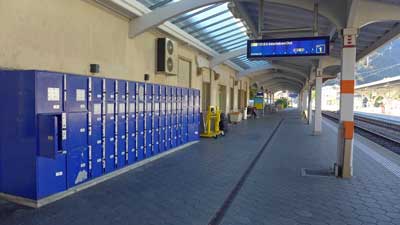
If you buy the Saver Day Pass at least 21 days in advance (and up to 60 days in advance) the 2023 cost is:
- 2nd Class (with Half Fare Card): CHF29
- 1st Class (with Half Fare Card): CHF82
- 2nd Class (with no Half Fare Card): CHF52
- 1st Class (with no Half Fare Card): CHF97
Once you research the normal cost of Swiss train fares you’ll see that the above prices are a very good deal for anyone riding more than 150 kilometers or so in a day. If you are just going, for example, from Zurich to Lucerne or Interlaken on a day, it’ll be cheaper to just buy that ticket individually. But if you are going from Geneva or Montreux to Interlaken or Lucerne then the Saver Day Pass will be much cheaper. Better still, you can use a Saver Day Pass to go from Interlaken to Geneva and back on the same day on the Goldenpass line and returning on the faster train through Bern, and it will still all be included for free.
If you don’t buy a Saver Day Pass at least 14 days in advance it’s more expensive, and if you only buy 1 to 3 days in advance it’s VERY expensive, so the key is to buy early. This is all confusing, but the Saver Day Pass should be a great option for many people only in Switzerland for one to three days.
Popular Swiss panorama scenic trains
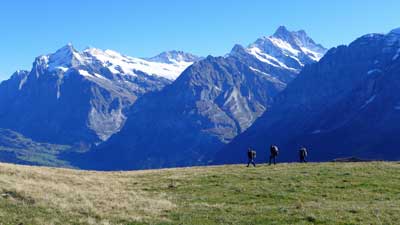
- Glacier Express
- Route: Zermatt to St. Moritz
- Train type: Panorama
- Journey time: 8 hours 3 minutes
- Distance: 291km
- 1st Class fare: CHF272
- 2nd Class fare: CHF159
- Compulsory seat reservation fee: CHF44 or 49
- Supplement for Swiss Pass holders: 13 to 33 for panorama carriage
- Bernina Express
- Route: Chur to Tirano and Lugano
- Train type: Panorama and bus
- Journey time: 4 hours 13 minutes and 3 hours 10 minutes
- Distance: 148km and 90km
- 1st Class fare: CHF113
- 2nd Class fare: CHF66
- Compulsory seat reservation fee: CHF32
- Supplement for Swiss Pass holders: 10 to 14 for panorama carriage
- GoldenPass Line
- Route: Lucerne to Montreaux
- Train type: Panorama
- Journey time: 5 hours 8 minutes
- Distance: 191 km
- Prestige Class fare: CHF131
- 1st Class fare: CHF96
- 2nd Class fare: CHF56
- Supplement for Swiss Pass holders: 8 to 15 for panorama carriage
- Gotthard Panorama Express (formerly Wilhelm Tell Express)
- Route: Lugano or Locarno to Lucerne
- Train type: Panorama and boat
- Journey time: 5 hours 21 minutes
- Distance: 182 km
- 1st Class fare: CHF164
- 2nd Class fare: CHF135
- Supplement for Swiss Pass holders: 39 to 49 for panorama carriage
- Swiss Chocolate Train
- Route: Montreux to Broc round trip
- Train type: Panorama or First Class
- Journey time: X hours X minutes
- Distance: 82 km
- 1st Class fare: CHF99
- 2nd Class fare: 89
- Supplement for Swiss Pass holders: 39
Popular Swiss scenic and theme trains
The scenic trains below are also extremely popular as sightseeing journeys rather than just as transportation, but can be used as both.
- Jungfraujoch round trip
- Route: Interlaken to Jungfraujoch
- Train type: special mountain train
- Journey time: 4 hours 41 minutes, round trip, plus time on top
- Distance: 73 km
- 1st Class fare: N/A
- 2nd Class fare: CHF224
- Supplement for Swiss Pass holders: 147 (so, a saving of CHF77)
- Gornergrat Railway
- Route: Gornergrat Railway
- Train type: Cog railway
- Journey time: 44 minutes return
- Distance: 10 km
- 1st Class fare: N/A
- 2nd Class fare: CHF90
- Supplement for Swiss Pass holders: 45
- Rigi round trip
- Route: Lucerne to Rigi
- Train type: Cog railway
- Journey time: 3 hours 25 minutes, plus time at the top
- Distance: 58 km
- 2nd Class fare: CHF78
- Supplement for Swiss Pass holders: None (this one is free with the pass)
- Mt Rigi Excursion (one-way and walk down)
- Route: Lucerne to Mt Rigi
- Train type: cogwheel train and/or cable car
- Journey time: 45 minutes up
- 1st Class fare: N/A
- 2nd Class fare: 49
- Supplement for Swiss Pass holders: 0
- Lotschberg Mountain Route and Centrovalli
- Route: Bern to Locarno
- Train type: Narrow gauge
- Journey time: 4 hours 40 minutes
- Distance: 212 km
- 1st Class fare: CHF158
- 2nd Class fare: CHF90
- Supplement for Swiss Pass holders: 5
- Jura round trip (Watchmaking Tour)
- Route: Neuchatel through Jura
- Train type: Regular
- Journey time: 3 hours 0 minutes
- Distance: 143 km
- 1st Class fare: CHF168
- 2nd Class fare: CHF108
- Supplement for Swiss Pass holders: 0
- Pre-Alpine Express
- Route: St. Gallen to Lucerne
- Train type: Regular
- Journey time: 2 hours 15 minutes
- Distance: 146 km
- 1st Class fare: CHF83
- 2nd Class fare: CHF47
- Supplement for Swiss Pass holders: 0
- Jura Foot Line
- Route: Basel to Geneva
- Train type: Regular
- Journey time: 2 hours 40 minutes
- Distance: 248 km
- 1st Class fare: CHF132
- 2nd Class fare: CHF75
- Supplement for Swiss Pass holders: 0
Popular Switzerland cable car rides
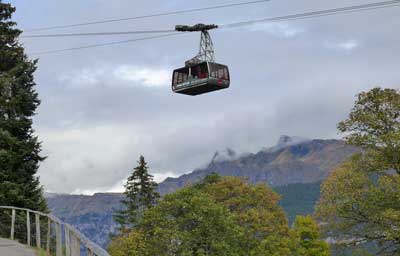
- Schilthorn
- Route: Stechelberg (Lauterbrunnen) to Schilthorn
- Train type: cable car
- Journey time: 1 hour
- 2nd Class fare: CHF108
- Supplement for Swiss Pass holders: 54
- Engelberg to Mt. Titlis cable car
- Route: Engelberg to Mt. Titlis
- Train type: cable car
- 2nd Class fare: CHF96
- Supplement for Swiss Pass holders: 46
The Swiss Travel Pass also includes free museum admission, but…
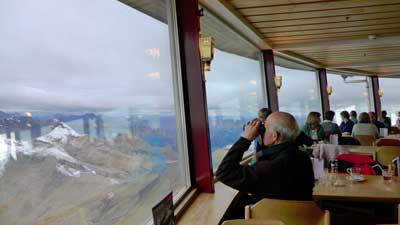
The problem is that the museums are only free on valid travel days, and almost no one would visit more than one or two museums with a Swiss Travel Pass. The trains and cable cars are so expensive that the pass gives very good value to cover those, so you don’t want to waste precious sightseeing time walking through a museum that only costs CHF10 anyway.
In other words, calculate the value of a Swiss Travel Pass on the travel savings only, and if you visit a museum here or there, then great. Most people are better off trying to squeeze in an additional train ride each day, and ignoring the museums. Switzerland is all about the outdoor scenery. As nice as the museums may be, they are not why you are there.
The pass includes free public transport in most Swiss cities
Similar to the free museum part of the offer, it’s best to ignore or minimize the value of free public transportation. It could be helpful in Zurich, but in most other Swiss tourist towns you won’t need much public transport. In fact, in Interlaken, each hotel or hostel guest automatically gets a card for free public transportation within the town (including between the two train stations).
So you might use a ride or two each day on public transport, but that won’t add up to much in terms of value of your Swiss Travel Pass.

Hi Roger,
1. Which train ticket is best to travel from Innsbruck to Zurich and then to Grindelwald? Do I need to buy any kind of a pass for this?
2. Does the HFC cover activities like lake cruise, boating, cable cars, etc. around Switzerland?
3. I am planning on carrying a 23 kg bag, do local trains have storage compartments for such a big bag?
Thanks,
Prachi
Prachi,
1. You can buy a ticket from Innsbruck to Zurich from the Swiss Rail site or the Austrian Rail site. It takes a bit over 5 hours. If you have a Half Fare Card you could theoretically use it for the last stretch from Bregenz, Austria to Zurich, so you’d buy one ticket to Bregenz and another from there to Zurich. It might not save any money, however, as the international tickets are discounted already if you buy in advance. You can buy the ticket from Zurich to Grindelwald anywhere in Switzerland, or online if you like. It’s the same price no matter when you buy it, so you might as well just buy it when you get there.
2. Yes, the Half Fare Card covers nearly every form of public transportation in Switzerland. It probably wouldn’t cover a boat rental, but it does cover the lake cruises and such.
3. The local trains usually don’t have a large storage area for suitcases at one end of the carriage like the long-distance trains do. But people still carry large bags on. Most people just put them on a nearby seat, and hope the train isn’t totally full. It’s very rare that local trains are full, but if they are you can usually put a bag somewhere, even if it’s in the aisle. You shouldn’t have a problem. -Roger
Hi Roger,
I appreciate your highly detailed information and advices on the blog.
I had couple of questions for which I need your help. Me and my husband are traveling to Switzerland for 4 days in early September and our base is Grindelwald so my questions are:
1.We are not sure to buy Swiss Travel Pass or Half Fare Card (If we get half fare card does it cover cost of Austria to Zurich fare – we will be coming from Innsbruck Austria to Zurich and from Zurich to Grindelwald).
2. We are not sure about train frequencies or mode of transport from Grindelwald..will commute be easy from Grindelwald to train stations like Interlaken?
3. Jungfraujoch or Schilthorn? any one ? or both? what is best suited for our short stay?
4. We love nature sight seeing so what other places would you recommend for leisure activities like lake cruise, boating, cable cars etc.(Will all this be taken care by Swiss pass or HFC?)
5. We want time flexibility so should we consider renting a car as option? ( as we also want to know if there are any scenic route which can be done by car)
Please do suggest about the pass and any suggestions to the itinerary are welcome.
Thanks!
Prachi,
I think I just answered most or all of these questions for AN in this same thread. If you have more questions, let me know. -Roger
Hi Roger,
After looking at your detailed information above, I think you will be able to clarify some of my queries…
1. I will be traveling with my wife in September from Innsbruck, Austria to Zurich, Switzerland by train. We are planning on driving from Zurich to Grindelwald where we’ll stay for 4 nights.
2. For the entire stay, we plan to rent a car (I heard that renting a car gives flexibility). What do you recommend/suggest? Should we travel by train or by car? We are not sure about the frequency of trains from Grindelwald to Jungfraujoch / Schilthorn / Lucerne / Interlaken / Montreux / Geneva.
3. Will it be possible to visit these places in 4 days? Do we need to get a half fare card?
4. We plan to go to Italy after Switzerland by flight – will it be better to fly from Geneva to Naples or from Zurich to Naples?
Thanks in advance,
AN
AN,
I normally don’t recommend renting cars in Europe, but Switzerland can be an exception because traffic is generally light and there is free (or at least easy) parking at many of the main sights because they aren’t in crowded cities. Personally, I love the trains and they go everywhere you want to go, frequently.
The trains up to Jungfraujoch leave a few times each morning. The cable car up to Schilthorn leaves every half hour during the day. The trains between the larger cities run hourly or half hourly from around 5am until around midnight, so it’s very easy to get where you want whenever you want.
Jungfraujoch takes about 6 hours total, so a bit more than half a day. Schilthorn takes about 4 or 5 hours total starting and ending in Interlaken. If you only have 4 days I’d suggest doing those two things near Interlaken and 1 or 2 days in Lucerne. Montreux and Geneva both have picturesque locations on a lake, but they are kind of boring otherwise, and not nearly as interesting as the amazing scenery in the mountains and lakes.
I would definitely get a Half Fare Card if you are planning on doing Jungfraujoch and anything else. If you skip that one and rent a car then a Half Fare Card might not quite pay for itself.
Zurich is a larger airport and usually has lower fares, but both of them are on the main train lines so you can check both. You might even consider going by train. The train from Interlaken to Milan only takes a bit over 3 hours and the views through the Alps are some of the finest in Europe. The train from Milan to Naples takes another 4 hours 15 minutes, but you also get to see all the Italian countryside, as well as a quick stop in Rome. Have a great trip. -Roger
Hi Roger
Below is my itinerary:
02 Aug 2017
Paris to Interlaken:
Interlaken to Grindelwald:
Drop luggage at Grindelwald
03 Aug 2017
Hike from Grindelwald to Eigergletscher
Eigergletscher to Jungfraujoch: https://www.virail.com/eigergletscher-jungfraujoch/2017-08-03 12:1210pm via SBB
Junfraujoch is the peak
Jungfraujoch to interlaken:
Interlaken to kandersteg:
Kandersteg for roller coaster
Kandersteg to Grindelwald:
Back hotel to zz
04 Aug 2017
Grindelwald hike to lauterbrunnen, skydive, paragliding all here
Lauterbrunnen to Grindelwald:
05 Aug 2017
Grindelwald to Interlaken:
Interlaken to Zurich:
Fly off
I was wondering if rail pass or train ticket is more worth it? And if the pass covers local trains in Switzerland such as kandersteg to Grindelwald
Alvin,
The Swiss Travel Pass is indeed confusing, especially when trying to figure out where it’s valid and where it only offers a discount. If you look online you can find maps that show that information, and looking at one I see that the Kandersteg route is covered 100% by the pass.
Even including that, it doesn’t look like you are taking many longer train trips in Switzerland, and you ARE doing Jungfraujoch. As such I think a Half Fare Card would save you more money than a Swiss Travel Pass. It gives a 50% discount for Jungfraujoch compared to only 25% with the Swiss Travel Pass. Honestly, the more itineraries I see, the more it looks like almost everyone is best suited to a Half Fare Card, except those who are taking several long scenic trains. Have a great trip. -Roger
Hello Roger,
Thanks for the highly detailed infos,
I will be in Switzerland from March 1st – 14th, 13 days trip,
We’re trying to do a full complete trip in Switzerland. ( Is 13 days enough or too long ?)
Do you suggest a 15 days Swiss Pass?
Thank you.
Chin,
I’d say that 13 days is longer than most visits to Switzerland, but if your goal is to do a full complete trip then 13 days might not even be enough. Switzerland is very expensive, even compared to all of its neighbors, and I think that’s one reason why most people don’t plan long trips there. But it’s also got the most spectacular scenery in Europe.
As for the Swiss Travel Pass, the shorter ones can seem expensive unless you are taking at least 2 or 3 longer scenic train rides, but the 15-day version is much easier to get good value out of on a long trip. I’d say it’s definitely the best choice for you, and you should easily be able to get probably double what you pay in value. Have a wonderful trip. -Roger
Hi Roger,
Firstly, thanks for this excellent blog.
I’m planning for a trip from Paris to Swiss towards end of July and going to stay for 6 days (including entry and departure dates). I’m thinking to keep Interlaken as a base accommodation and then travel to places like:
– Jungfraujouch, Mount Titlis, Zurich Rhine falls etc
– This includes the cable car in one of these
I’m thinking to travel from Paris Basel Interlaken and return back to Paris. The point-to-point train prices are high. Hence, planning for a France-Swiss Eurorail Select Card. My queries are:
1) Is Eurorail France-Swiss pass a good option
2) Does this pass cover any trains between Basel, Interlaken, Lucerne, Zurich etc
3) I found that separate reservation is required for Paris Basel trains. Do I need to reserve for Basel Interlaken and other trains?
4) Along with Eurorail pass, should I go for Swiss Travel Pass (looks expensive) or Half Fare Card (2 x CHF 120)?
– Also, does 4 days Swiss Travel Pass covers my trip?
(Note: We are 2 adults and 2 children below 10 years)
In short:
Eurorail Select + Swiss Travel Pass
– OR –
Eurorail Select + Swiss Half Fare Card
Regards,
Krishna
Krishna,
Eurail Passes in France are tricky because they require expensive seat reservation fees on the popular high-speed trains such as Paris to Basel. If that is the only route you’ll take in France, it’s probably not worth buying a two-country pass.
Eurail passes DO cover all of those intercity trains in Switzerland, but they only provide a discount on most of the mountain trains including Interlaken to Lauterbrunnen (which is short and fairly cheap anyway), as well as only a discount on cable cars and cogwheel trains.
You do NOT need a seat reservation on the vast majority of trains in Switzerland, except for certain Panorama carriages on scenic train routes. For trips between major destinations on normal trains, you can just hop aboard and find a seat.
Really the Half Fare Card is a better deal for most travelers to Switzerland. Unless you are planning at least two of the longer scenic train rides, it’s hard to justify the price of the Swiss Travel Pass. Also, the Half Fare Card provides a 50% discount on Jungfraujoch, compared to only a 25% discount with a Swiss Travel Pass. Jungfraujoch itself almost pays for the CHF120 Half Fare Card. Also, with a Half Fare Card (or Swiss Travel Pass) the children can ride free with a paying adult once you get the free Swiss Family Card.
Again, I think it’s possible that the Half Fare Card is all you need. If you are only going between Paris and Basel and back, if you buy the tickets as early as possible the fare shouldn’t be too bad. And the seat reservations with the Eurail Pass in France also cuts into its value. I don’t know what the exact numbers are, but my hunch is that the Half Fare Card alone could be the cheapest option. Let me know if you have any other questions. -Roger
Thanks Roger!
Hi roger !
This blog makes the trip planning to switzerland real fun.
I feel myswissalps.com is only promoting the Swiss travel pass and the more expensive tourist attractions.
Need your help with the trip as well as the pass
June 14 from Zurich reach interlaken around 2.oo pm…how best to utilise the second half….. also suggest which is the more scenic route for reaching interlaken
June 15 jungfrauch/schilthorn depending on the weather … on the way back grindelwald/gimmewald. ..or?
June 16… we are staying at engelberg for four nights..
Travel from interlaken to lengelberg via lucerne
Would it be possible to stopover at lucerne … we are six of us with luggage…enjoy the evening and then proceed to engelberg .. where to keep the luggage/
Or should we first go to engelberg straightaway keep our luggage and then come back to lucerne for the evening
Do glacier garden at lucerne .. either in afternoon or evening …
June 17… mount titlis …. evening at lucerne
June 18 … trip to bern /use any panoramic train day trip from lucerne /engelberg… please suggest….or anything else that you recommend
June 19.. mount rigi/Pilates ….
June 20 … Zurich … one night …. what can be done in the evening ?
I am travelling with my parents 65 and above , my teenage kids and my husband…
Am open to suggestions and tips… both regarding the itinerary and pass… but my stay is fixed… two nights at interlaken and four at engelberg…
Thanks
Vandana,
Thank you. I think Myswissalps.com does a pretty good job and they have far more information than I do, but I guess they are a bit more commercially oriented. I’ll try to answer your questions in order.
I’d just take the fast train from Zurich to Interlaken. Once you get outside the Zurich area, it’s all incredibly scenic.
Grindelwald is very nice and it’s a great choice if you do Jungfraujoch, but Gimmelwald is more unusual and it’s the obvious choice (or Murren) if you do Schilthorn.
You could stop in Lucerne for a few hours. There are definitely luggage lockers in the Lucerne train station, including some large ones, so it might cost CHF20 or so to store that luggage for up to 6 hours or so. It might be more if you have large bags, but it will still be worth it. Most likely they also have a Left Luggage desk (most larger European train stations do), where you can check the bags with an attendant for short periods. The most scenic part of the lake with Chapel Bridge is a very short walk out of the train station, and there are dozens of restaurants in that area as well.
I’m not familiar with Glacier Garden there.
One thing you might consider is keeping those few days a bit open. It can be rainy and cloudy in the mountains during summer, although the storms usually don’t last long. So you can go to the peak attractions such as Titlis, Rigi, and Pilatus when you know the weather is clear up top, and if it is rainy or cloudy you can hop on a train to Bern or somewhere else. Usually the weather in the cities is dry in summer, although not always. That way you can have a better chance of being able to see those places in clear weather. It’s almost always easy to get tickets just before you want to go, precisely because that is what most people recommend.
One evening in Zurich will be enjoyable and the historic center on both sides of the river (mostly on the east side though) is nice to walk around in. Restaurants and bars there are even more expensive than they are everywhere else in Switzerland, and that’s saying something. If you get there early enough you might consider one of the free (tips based) walking tours, which take about two hours. Have a wonderful trip. -Roger
Hi Roger,
This is by far the best information I’ve found while planning my trip to Switzerland at the end of the month! I’m having a little trouble figuring out whether to do the 4 consecutive day Swiss Pass, Half-off card, or pay as I go. My goal is to see and experience as much of Switzerland as I can. I’m a high adventure trip leader in the states, so I’m planning on trying to get that in as well. Here’s my itinerary:
Day 1: Land in Zurich from Berlin Early morning; Enjoy Zurich
Day 2: Travel to Lucerne in morning; Enjoy Lucerne until late afternoon; Travel to Interlaken
Day 3: Canyoning near Interlaken at Chli Schliere (with Outdoor Interlaken); Stay in Interlaken
Day 4: White Water rafting on the Lütschine River in the morning until 1 pm; Not sure whether to stay in interlaken or head somewhere else after; open to suggestions on where to go/what to do with the rest of my day.
Day 5: I was thinking of doing the Jungfraujoch train this day or another scenic railroad, but am very open to suggestions
Day 6: I need to get to Zurich by 5 pm for my flight back to Berlin at 7 pm that night
Thank you again for your helpful blog and your advice!
Cory,
I appreciate the kind words. If you are going to do Jungfraujoch, which I highly recommend assuming the weather is decent when you are ready to go, then the Half Fare Card is the obvious choice. That one amazing trip almost covers the cost of the Half Fare Card itself, and Schilthorn covers well over half of it on its own as well. Long story short, get the Half Fare Card. You’d have to take at least a couple of the longer scenic train rides in order to justify the Swiss Travel Pass, and even then it only gives a 25% discount on Jungfraujoch.
The other thing to consider is that the normal train rides in Switzerland are kind of pricey, so unless you ONLY were going to go from Zurich to Lucerne to Interlaken to Zurich, the Half Fare Card will save you money. It’s also nice to just buy the HFC and then suddenly all of the expensive stuff in Switzerland feels very reasonably priced. So if you want to experience Switzerland and do various adventures, you won’t have to worry about the crazy prices of each additional train ride or cable car or whatever else. Have a great trip. -Roger
Thanks you Roger!